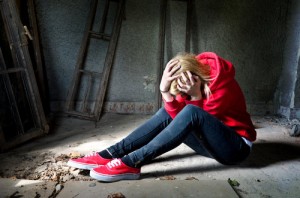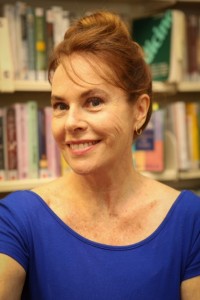 An Interview with Australia Counselling Member Susan Loane
An Interview with Australia Counselling Member Susan Loane
Susan Loane is a rare breed of counsellor.
She is a therapist who is passionate about changing the lives of young people.
Working with young people can be very challenging and is typically known as an area of counselling where most counsellors don’t stay for long periods of time due to the nature of the work. However Susan has been working with young people for over 20 years and has the experience and knowledge to assist some of the most vulnerable people in our communities.
Here’s what she had to say when we interviewed her recently.
Tell us a bit about your practice- where it is, who you work with and the services you offer
I am a child and family counsellor and therapist servicing the Brisbane Metro and Gold Coast regions of Queensland. I have offices in South Brisbane, Logan and the Gold Coast. I offer an outreach service for special circumstances.
I have clinical accreditation as a Family Therapist and Psychotherapeutic Counsellor with the Australian Association of Social Workers. I also work with individuals and couples.
How did you become interested in counselling and working with young people?
When I first started counselling over 20 years ago, I worked for a governmental agency, which received referrals from The Department of Family Services. These referrals were assigned to this agency specifically due to the fact that these cases, mostly young people, their parents, and carers were people that other agencies could not work with due to extreme behavioural issues, self harming, truanting, drug and alcohol issues and mental health issues.
As a young therapist, I was working extremely well with these cases, so much so that the Department would request me as the ‘Preferred Therapist”. I worked long hours and managed to turn the lives around of many young people, who were considered ‘too hard to handle, hopeless and beyond help’ by their families and affiliated agencies. That was a long time ago now. Scary to think about it, but I have continued to work at this level with young people, and can say that I have not had to date any disappointed outcomes to date.
What are the issues you see young people facing today?
 Mental Health issues, drug issues, homelessness, labelling, addiction to prescription medications, as well as street drugs. Hopelessness and despair.
Mental Health issues, drug issues, homelessness, labelling, addiction to prescription medications, as well as street drugs. Hopelessness and despair.
Working with young people is hard work. However, it becomes easier as you are genuine about making significant life changes for them. Young people are very perceptive, especially the ones who have been kicked around. I continue to work with them because I feel I have always had empathy for their situation in our society. Never before on mass has a generation of young people been homeless or labelled ‘street kid’; ‘druggy’ ‘cutter’ and never before on mass have the mental health wards had such a large number of young people on their wards. This is ongoing and the numbers are increasing.
Where do you see that young people are struggling in terms of their mental health?
The world is a competitive place, the pace is faster, due to our technological advances over the past two generations. This has placed incredible pressure on families to keep up this pace. Parents expect young people to achieve. This is putting such pressure on our young people, that they are burning out at an incredibly young age. Another factor is the low literacy rate of young people in our schools.
As a community, we have a lot to answer for in terms of where our generation of young people are headed these days. But unfortunately, this topic is not debated as it ought to be. Therapeutic Social Workers, who are working at the brunt of this issue on a daily basis will know where I am coming from.
How do you believe people change and what supports long-lasting change in young people?
There is an old saying that I have never forgotten, ironically my mother used to say this to me, “the toughest cookie is the one that has been the most burned”. I believe this to be true, based on my intervention over the past twenty years with some tough kids, males and females, they take to my intervention like a sponge to water. I offer them a glimmer of light, they grab at it with both arms.
Young people want to achieve great things, they just seem to have lost the inclination to do so due to ongoing rejection and bad experiences which is based on a lack of support from significant others. The breakdown of families and divorce in our community is one in three, and this is on the increase also.
Young people need to link in with a significant person who is genuine about assisting them with changing their circumstances, which in many cases is due to factors out of their control. Long lasting change occurs when the young person starts to gain self esteem and self awareness in the fact that they can change and achieve positive significant lifestyle changes, such as returning to study, or starting in the workplace in a role that they can develop and grow as a successful adult.
This significant other is quite often a Counsellor, such as myself. I never close the door on a young person, and I have found that they eventually seek to become more independent and move on with their life when they are strong enough to do so. I still receive letters from a couple of kids I worked with over twenty years ago, who have become counsellors.
Tell us about your approach and why you believe the way you work is effective in helping young people change
I think this is due mostly to the fact that I like young people, I understand where they are coming from, and they know once they have seen me a few times, that I am in for the long haul. This gives them a sense of self worth. They like that approach…it works for me. I also put it down to a good job match. Meaning that I have been fortunate in that I have been able to make a career out of something I am passionate about, and I believe that I can help them.
I’ve been around a long time, which is unusual for a therapist working in this specialist area. They usually move on after five years into a less challenging area of practice.
Tell us what a young person can expect to experience in an initial counselling session with you
I can’t answer this, it’s not for me to give young people any expectation of what their experience will be, as they are all different, even young people who present with very similar dynamics as other young people, their experience with me is special to me, and I want it to be special for them, as their life will change from that moment on.
On a personal note, tell us something that you’re passionate about or love to do in your spare time
I love driving through the country and listening to my favourite music very loudly, which I guess is pretty eclectic in taste, but also to work at this level of Therapeutic Counselling successfully, is a bit of a balancing act. To keep up with the challenges involves self care; doing something I am really into. Something that relaxes me, and recharges my batteries so to speak.
I start each day with a fifteen minute yoga session. I have done this since I was eighteen years of age. Stretching the body through the medium of yoga, releases tension throughout the body, as specific points. I love exercise and regularly work out at home, I have a private gym. I start the day with exercise and finish with a jog in the evening. This keeps my mind relaxed, active and open for the new challenges of tomorrow. Bring it on. I love my life, this helps too I suppose.
To find out more about Susan or to contact her, please visit her Australia Counselling profile.






Leave a Reply